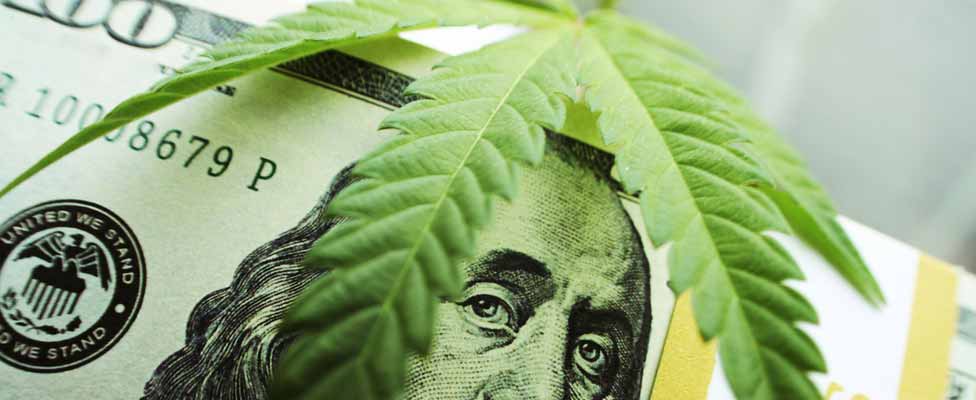Leonardo da Vinci has been dead for 498 years. But the man is still setting the art world on its ear.
Last week, a rediscovered painting titled Salvator Mundi sold at a Christie’s auction in New York for a record-shattering $450.3 million.
Experts estimated the 500-year-old painting would sell for around $100 million. That would have fallen short of the last record set by a Pablo Picasso painting in 2015 for $179.4 million.
The Dmitry Rybolovlev family trust sold the painting after acquiring it in 2013 for $127.5 million. That’s a return of 253%. Or an annualized gain of 63.3%.
Of course, not every investment we make can knock it out of the park quite like that. It is still important to remember that there are other strategies for growing your wealth beyond just what’s trading on the New York Stock Exchange.
That Life-Changing Discovery
We all want to make that world-changing find. Maybe you’re wandering through a parsnip field and you stumble across a thousand-year-old Viking penny. (Don’t scoff. This really happened.)
Or maybe it’s that incredible find at the local flea market. It can happen. One gentleman made an interesting discovery about six years ago when he purchased an interesting tintype for just $10.
Experts found that the tintype — a photographic image produced on a thin sheet of metal — held an image of Billy the Kid. The image also had Pat Garrett, a former friend and lawman who would later kill Billy. The tintype is estimated to have been taken sometime between 1875 and 1880.
While not formally valued, a similar tintype with Billy the Kid was valued at $5 million in 2015.
That’s an excellent return on investment should the owner of the tintype ever decide to sell.
The key is to remember that diversifying and growing your wealth effectively means including assets not typically found on Wall Street.
What’s more, they don’t have to be assets exclusive to the ultrarich.
You Don’t Have to Be in the 1% to Use Collectibles
Collectibles such as rare coins, stamps, wine, art and comics have shown steady growth in value regardless of what’s happening in the stock market. But investors too often overlook collectibles, believing they are too complicated when it comes to using them to protect and grow their wealth.
A large number of collectors support this unique investment asset class. Yet investors, except for the ultrarich and the royal dynasties, largely ignore collectibles as a way to preserve, grow and hand down wealth.
Because collectors control most collectibles, these rare items are protected from the whims of the market. Collectors don’t decide to liquidate their collection just because the S&P 500 is crashing. In fact, in difficult times, they are more likely to hold tight to their items.
Geoff Anandappa of Stanley Gibbons has pointed out that rare stamps have seen consistent growth on average of 9.4% per year over the past several years.
Meanwhile, another option that more investors have started to consider is colored diamonds. David Metcalfe, president of Premier Diamond Group, reported that natural colored diamonds have never gone down in value at the dealer level in nearly 50 years. What’s more, they’ve doubled in value every five to eight years.
Collectibles for Safe and Sound Diversification
Ted Bauman, editor of The Bauman Letter, has laid out in his newsletter how to properly diversify your entire portfolio. It should include a variety of stocks, fixed income instruments, currencies and precious metals for speculation.
He has also pointed out that rare tangible assets are a key asset class that should be included not only for growth but also as a hedge against market volatility.
The U.S. stock market has had a great run over the past several years. But markets don’t go straight up.
And when stocks finally pull back and your stock portfolio is looking a little sickly, it will be reassuring to know that the wealth you’ve got socked away in stamps, coins, diamonds or art is safe and growing.
Regards,

Jocelynn Smith
Sr. Managing Editor, Sovereign Investor Daily
P.S. Wouldn’t it be great if you opened up your mailbox and found a big, fat check waiting for you? That can really happen as soon as next month thanks to a program that authorizes agencies around the country to dole out money. These agencies are slated to pay $34.6 billion over the next year to any American taxpayer with a claim on the cash. Yes, that’s right — $34.6 billion. And unlike Social Security, there are no age requirements, and the payouts can be much, much higher. However, you must act now if you want to start collecting your checks as early as next month. Thousands of Americans are already using this program to get rich, and if you’d like to join them, click here for all the details.




